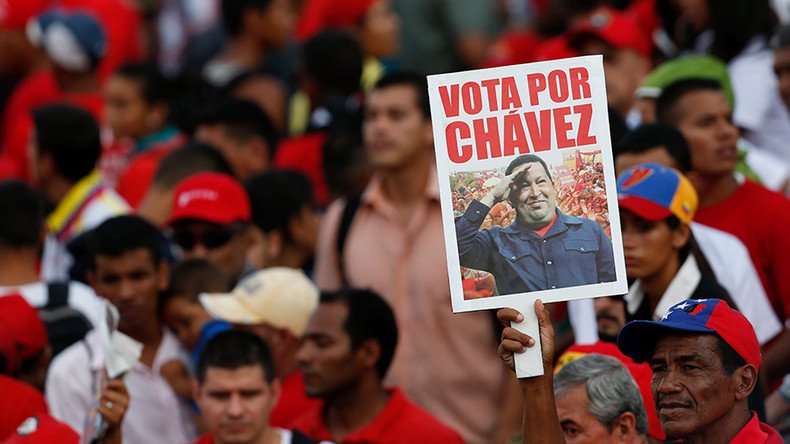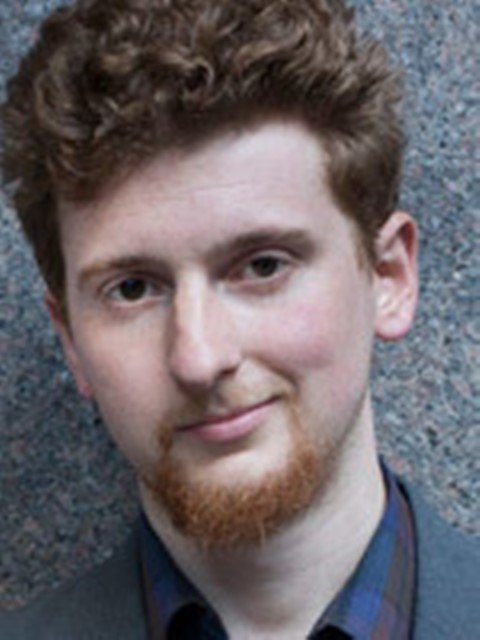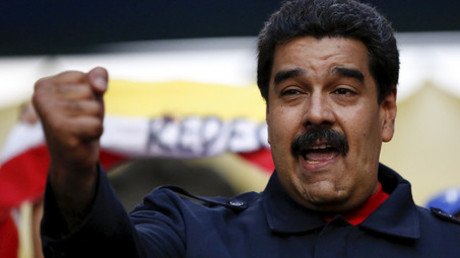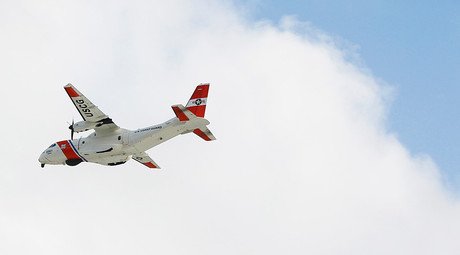Letter from Caracas: Spirit of anti-neoliberal 'chavismo' alive and well

Western media reports surrounding the Dec. 6th vote in Venezuela have focused on an alleged decrease in enthusiasm for the project of 21st Century Socialism, started by President Hugo Chavez and continued by his successor Nicolas Maduro.
While the drop in oil prices, increased US sanctions and other hardships may have hampered the enthusiasm of some Venezuelans, there remains a large group of Venezuelans who are absolutely dedicated to continuing the Bolivarian Process [refers to a leftist movement put into motion by late Venezuelan president Hugo Chavez, the founder of the United Socialist Party of Venezuela].
In the center of Caracas, near the presidential palace, a district referred to as the “January 23rd Neighborhood” is home to over 100,000 people. The low-income working class neighborhood played a key role in forcing out the US-backed military dictatorship many decades ago. Today the area is a stronghold of 'chavismo.'
On Dec. 5th, the day before the National Assembly elections, I visited two different sectors in this strongly Pro-Bolivarian neighborhood, and talked to the residents about why they support the current government and the ruling “Patriotic Pole” of parties aligned with it.
I did not find brainwashed drones repeating totalitarian slogans. Instead, I found educated, well-informed, and opinionated people who have seen their lives drastically improved over the last 15 years.
“From Zero to a Thousand”
Haido Ortega, a member of the community council in his parish gave very concrete examples of how life has gotten better for his neighbors. He said “Under previous governments we had to burn tires and go on strike just to get electricity, have the streets fixed, or get any investment.” When I asked what the local residents had gained from the Bolivarian Process, his answers were very specific: “Cooking gas, a sewer system, repairs for the houses. Almost all of these houses were built by the community council. We also have a Cuban medical clinic.”
A key pillar of the United Socialist Party’s program has been using the money from Venezuela’s oil exports to fund public services. Most of the houses in the district were constructed with loans from the state and allocated to the community councils. Now, in this historically impoverished district, over 80 percent of the people own their own homes. Every house in Venezuela is supplied with cooking gas by the government. A medical clinic, staffed by Cuban doctors, allows neighborhood residents to receive free healthcare. An adult education center has been constructed, and free classes are being held almost every day. “Social progress went from zero to a thousand,” Ortega said.
Reynaldo Bolivar, the Vice Foreign Minister for Africa, explained that economic support of the population is not just charity. The intention is to build a vibrant, independent Venezuelan economy: “In the past we only bought technology from the United States, and we would only sell oil to the United States. We were totally dependent. Dependency is fatal for the country.”
Due to the policies of the Bolivarian government, it now costs less than $1 to fill a gas tank. Children in schools receive free breakfast, lunch, and snacks. Rural Venezuelans receive interest-free loans in order to buy their own land. Public transportation is extremely cheap - and free for senior citizens.
Intensive efforts have also been made to promote education. “In 1998 we had only 12 public universities. We have created 32 new public universities in the country,” Bolivar explained. Venezuela now has its own satellites orbiting the earth and broadcasting its TV networks across the planet. The situation for Afro-Venezuelans has vastly improved, and students from all over the world come to Venezuela for university education.
Inside the Beehive
In the last years of his life, Chavez began to push for the creation of communes. When I visited the Communa Panal (Beehive) 2021, I met with a 25-year-old woman named Anacoana. She did not give her last name, but was happy to talk about what life was like in the Bolivarian Commune. As she spoke I could hear the drilling and hammering of construction workers outside. A new basketball court was being built across from the apartment buildings and houses where 1,300 families live in a “socialist city.”
Smiling, Anacoana described this philosophy of the autonomous structure: “We are called the Beehive Commune because we admire the ways that bees work together in the hive… If the bees are working together and you put your hands into the beehive, you will get stung. After they sting you, they will die. They have the willingness to die in order to defend themselves.”
Anacoana was serious about giving her life for the revolution. She said: “I am a religious person. I thank God that I was alive in the time of Chavez, and I hope that God will allow me to die for Chavez.”
Anacoana and over a hundred thousand other young Bolivarians have engaged in military training. In the case of a coup d’etat or foreign attack, they are armed and ready to defend the government, though they remain an independent, non-government collective.
“We have studied the history of communal movements around the world. We studied the communes of the Chinese revolution. We studied the Zapatistas. We studied the landless peasant movement in Brazil. We also studied Hezbollah, and their struggle against the government in Lebanon, and to build hospitals and schools,” she said.
“We want to build our own infrastructure with our own ideology in a sovereign manner.”
While US media often highlights the complaints of wealthy young Venezuelans who dislike the United Socialist Party (PSUV), Anacoana represents a different sector of the country’s youth. “We are the children of Chavez. I’m 25 years old now. Back when the coup against Chavez happened in 2002 I was only 12,” she said. “Chavez was the best teacher. I wouldn’t get tired of listening to him. I would listen for eight hours and not get tired… He would encourage people to read… We, the young people, are what he planned to create. He rescued the children of Latin America.”
In the Bolivarian neighborhoods of Caracas, one can have the kind of conversations about literature, world history, politics, religion and philosophy only found on college campuses in the United States. In his TV broadcasts, Chavez encouraged Venezuelans to read Max Weber, Frederich Nietzsche and Victor Hugo, as well as Karl Marx and Vladimir Lenin.
Indeed, the Communa Panal is one of thousands of collective structures where Venezuelans who call themselves “Socialistas” and “Communistas” are working together. These communes sometimes produce products that are sold. Many of them have radio and TV stations from which they broadcast anti-capitalist and anti-imperialist politics.
Anacoana was adamant that it would take far, far more than an electoral victory for the opposition parties to derail what’s happening in working class neighborhoods throughout the country. When asked, she spoke of the rich and powerful who condemned Venezuela to decades of poverty and foreign domination.
She said: “They will not come back (No Volverán). This is not just a slogan.”
The statements, views and opinions expressed in this column are solely those of the author and do not necessarily represent those of RT.
















